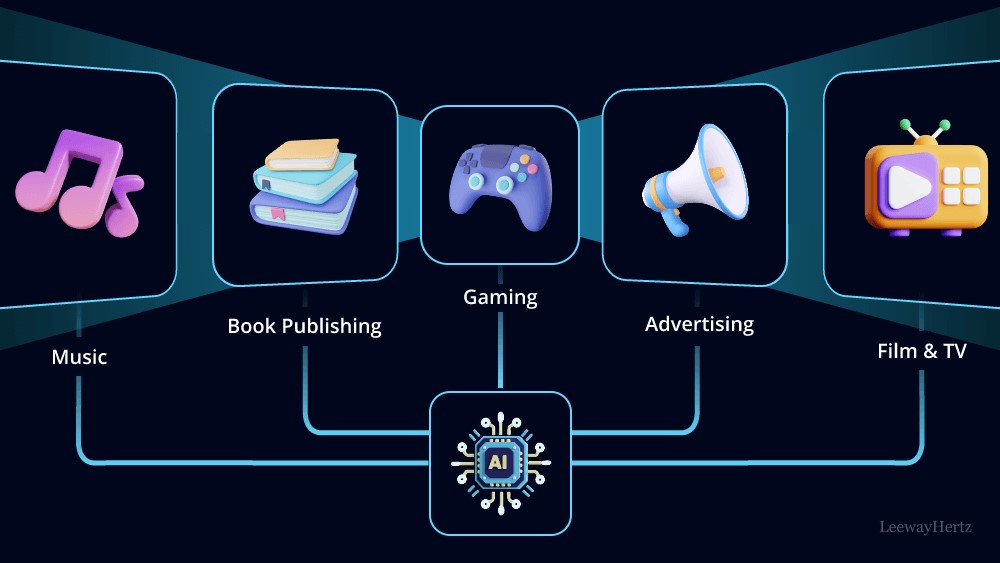By Bill Dan Arnold Borodi
Artificial Intelligence (AI) is often perceived as complicated technology reserved for tech-savvy individuals; however, people would be surprised to know that it can make their lives much easier once they discover the various things it can do.
AI applications span from simplifying routine tasks to aiding in intricate decision-making processes. This has made it a hugely important part of various industries. From academic research to entertainment to graphics, many people are finding ways to enhance their experiences or do work better using AI.
Making research easier
Patience Kirage, a student studying Law at Uganda Christian University (UCU), has found Meta AI – an AI driven chatbot on WhatsApp – to be valuable when it comes to her studies, especially for her worldviews course.
She relies on Meta AI, to quickly locate relevant information and generate ideas for her assignments. “Meta AI saves me time and effort,” Kirage explains. “I can focus on understanding the concepts instead of spending hours searching for information.”
Like Kirage, Rosette Masaba Kagushi, the Youth Wing Coordinator at the Uganda Council on Foreign Relations and a masters student, uses AI tools including ChatGPT(also a chatbot) to streamline her research process. Before diving into more detailed searches on Google Scholar, she uses ChatGPT to gain a preliminary understanding of her topics. “ChatGPT gives me a starting point for my research,” she explains. “It helps me identify key concepts and ideas quickly.”
For Ronald Mupuya, a teaching assistant from the Faculty of Agriculture UCU, Tome (a platform that helps to automate presentations) and ChatGPT help him with his teaching and research.
He uses these tools to prepare study materials and address daily questions that arise in his day-to-day life.
“I am learning more ways of interacting with AI, discovering its strengths and weaknesses,” Mupuya says, adding, “Overall, AI adds tremendous value to the educational world.”
Providing tools for work
AI also improves work flow and provides one with tools to ease the load they might have. Lionel Waako, a student of Accounting and Finance from the School of Business UCU, says he employs both ChatGPT and Deep AI (a platform that helps to generate text, images and more) to verify the authenticity and quality of his work.
He values AI for its ability to provide references on statistics and confirm the accuracy of audit-related information. “It helps me with accountability and gives me insights into audit quality and firm reputation,” Waako notes.
He is currently learning how to use new tools like Power BI (a data analytics tool) that he hopes will help him in dealing with large amounts of data.
In the field of graphic design, AI is proving to be a game-changer. Ronald Ocweo, a graphic designer, says he utilises AI features in video editing software like Capcut and Power Director to streamline his editing process.
He also uses background removal tools that are faster and more efficient than traditional software like Photoshop. “AI helps me save time and effort,” Ocweo says. “It speeds up tasks like generating subtitles for my audio-visual projects, allowing me to focus on refining my work.”
In addition to these, he says AI helps him with brainstorming and enhancing his story concepts and titles.
“AI provides me with a variety of ideas to choose from,” he explains. “This broadens my scope of selection and helps me create more innovative and creative designs.”
Entertainment
Apart from all things serious, like work and research, people are using AI for entertainment as well. Masaba for example says she finds ChatGPT helpful in locating good restaurants. “It’s a handy tool for finding recommendations wherever I am,” she says.
Despite its numerous benefits, AI is not without its challenges. Kirage for example notes that AI can sometimes provide incorrect information, particularly in the context of legal research. “Unfortunately, AI often gives wrong answers,” she says. “It sometimes offers uncoordinated information about cases, which can be frustrating,” she reveals.
This is a significant concern, particularly in fields that require accuracy. Users must therefore remain aware of its limitations and potential flaws and approach its outputs with a critical eye, as well as cross-check information when necessary.
As AI technology continues to develop, balancing its benefits with careful evaluation will be key to harnessing its full potential while mitigating its shortcomings.


